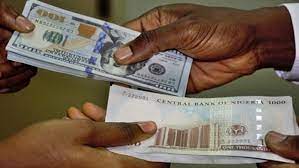
Introduction:
The exchange rate between the Naira and the Dollar is a crucial economic indicator that influences various facets of a nation’s financial landscape. In recent times, the disparity between the Naira and Dollar exchange rates has garnered significant attention, sparking discussions and concerns among policymakers, economists, and the general public. This blog post aims to delve into the possible causes behind the fluctuations in the Naira-Dollar exchange rate, offering insights into the complex dynamics that contribute to this economic phenomenon.
1. Economic Factors:
The state of a country’s economy plays a pivotal role in determining its currency’s exchange rate. Economic indicators such as inflation rates, interest rates, and GDP growth can impact investor confidence and influence the demand and supply for a currency.
2. Foreign Exchange Reserves:
The level of a country’s foreign exchange reserves is critical in maintaining stability in the exchange rate. A decrease in reserves may signal economic vulnerabilities, leading to a decline in the value of the domestic currency against the Dollar.
3. Government Policies:
Monetary and fiscal policies implemented by the government can have a profound impact on exchange rates. Policies that promote economic stability, encourage foreign investment, or address inflation concerns can positively influence the exchange rate.
4. Global Economic Conditions:
The global economic environment, including geopolitical tensions and trade relations, can affect currency exchange rates. Changes in global economic conditions may lead to fluctuations in the demand for and supply of currencies.
5. Trade Imbalances:
Persistent trade imbalances, where a country’s imports significantly exceed its exports, can contribute to a weaker domestic currency. This imbalance affects the demand for foreign currencies, influencing exchange rates.
6. Speculation in the Foreign Exchange Market:
Speculative activities in the foreign exchange market can lead to short-term fluctuations in exchange rates. Traders and investors reacting to news, rumors, or perceived economic risks can impact the Naira-Dollar exchange rate.
7. Political Stability:
Political stability is crucial for investor confidence. Uncertainty or instability in the political landscape can deter foreign investments, leading to a depreciation of the domestic currency.
8. External Debt Levels:
High levels of external debt may contribute to concerns about a country’s ability to meet its financial obligations. Investors may adjust their portfolios, impacting the demand for the domestic currency and its exchange rate.
9. Market Forces of Supply and Demand:
Ultimately, the exchange rate is determined by the interplay of market forces. If demand for a currency exceeds its supply, its value may rise, and vice versa.
10. Impact of External Shocks:
Unforeseen events such as natural disasters, pandemics, or economic crises can create sudden shocks to the exchange rate. These external factors may lead to short-term fluctuations and adjustments.
Conclusion:
Understanding the myriad factors influencing the Naira-Dollar exchange rate is crucial for comprehending the complexities of the global economic landscape. While some factors may be interconnected and dynamic, policymakers continually work to strike a balance that ensures stability and fosters economic growth. By staying informed about these variables, individuals and businesses can better navigate the economic environment and make informed decisions in response to exchange rate fluctuations.










